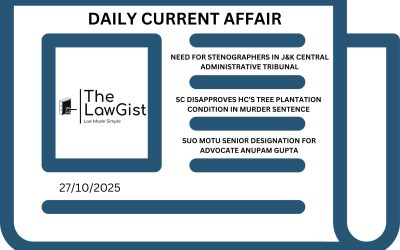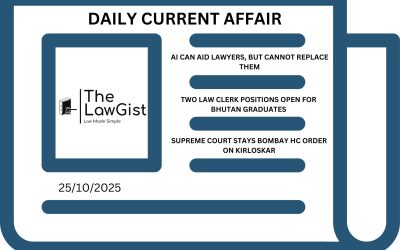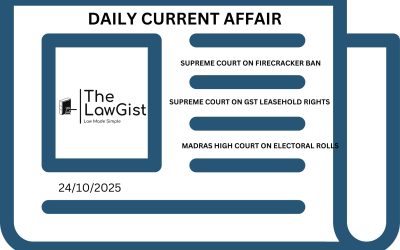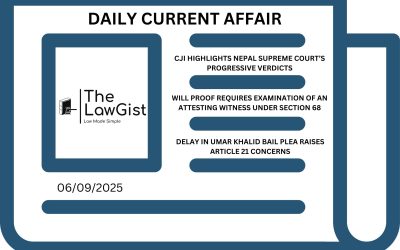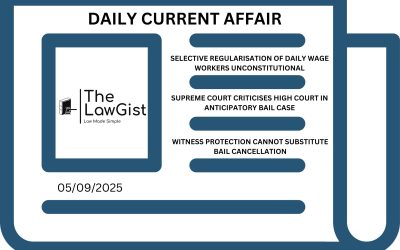
RULE ON LISTING BAIL PLEAS FROM SAME FIR WON’T APPLY IF JUDGE’S ROSTER CHANGES: SUPREME COURT
Case Name: Shekhar Prasad Mahto v. The Registrar General, Jharkhand High Court
The Supreme Court in recent order clarified regarding the bail application.The Court cleared that to ensure consistency in hearing of the case the same judge will handle the bail application linked to the same FIR. But they also mentioned in case of change of Judge’s roster other Judge can hear the plea so to prevent the delay in the process. The judge hearing the please will take the views of the previous judge in consideration while deciding the bail application.
Legal Framework:
- Rajpal v. State of Rajasthan (2023) emphasized listing all bail applications under the same FIR before one bench.
- HIGH COURT ROSTER SYSTEM- Changes judicial assignments- For Flexibility in bail hearings.
Source: Supreme Court of India
SUPREME COURT ASKS BCI TO HOLD STAKEHOLDER MEETING ON 1-YEAR LL.M. TEACHING REQUIREMENT
Case Name: Tamanna Chandan Chanchlani v. Bar Council of India & Ors.,
Recently while hearing the Tamanna Chandan Chanchlani petition which was aggrieved by the BCI Rules, 2021, which states that Mandatory one year teaching experience is required for recognition of LL.M. One year degree be it from Indian University or Foreign University. The Supreme Court asked the Bar Council of India who is authorised to make rules in this regard as per Advocate Act 1961 for legal Education, to have all stakeholder meetings in this regard, if not resolved the Court will decide the matter on the basis of merit.
Legal Framework:
- Advocates Act, 1961: BCI regulates legal education only for enrollment, not post-graduate studies.
- BCI Circular (20.05.2024) restricts recognition of foreign LL.M. degrees unless teaching experience is completed.
Source: Supreme Court of India
COMPASSIONATE APPOINTMENT TO BE GRANTED ONLY IN “HAND-TO-MOUTH” CASES: SUPREME COURT
Case Name: Canara Bank v. Ajithkumar G. K.,
The Supreme Court while hearing the case of compassionate appointment ( which means after death of a government servant, job given to family members) dismissed the plea while stating the benefits must be considered while evaluating financial needs of the person. All though the petitioner claimed for the same in 2001 while Compassionate scheme 1993 was applicable but due to delay in hearing the High Court introduced a new scheme in this regard in 2005 which provides ex-gratia payments. But the Court also clarified that it can not be decided on the basis of the 2005 scheme.
Legal Framework:
- Canara Bank v. M. Mahesh Kumar (2015): Earlier view that pension/terminal benefits don’t affect claims.
- State of Madhya Pradesh v. Amit Shrivas (2020): Reaffirmed that the policy at the time of death applies.
- Compassionate Scheme 2001
- New Scheme Introduced by HC in 2005 for the members of deceased family.
Source: Supreme Court of India
Also Read- DAILY CURRENT AFFAIRS (11 FEBRUARY 2025)


